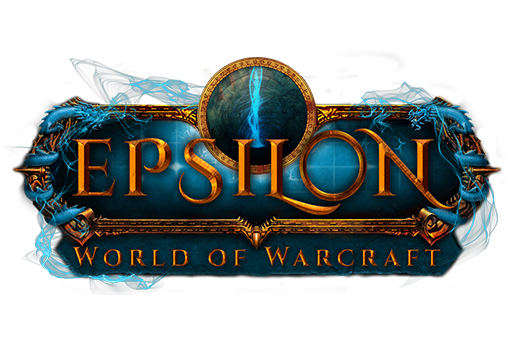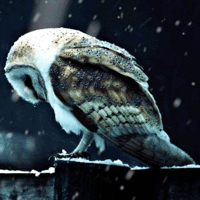Leaderboard
Popular Content
Showing most liked content on 07/09/21 in all areas
-
1 likeChangelog (Patch 830.2a - "Amending Areas") Release date: 03 July 2021 Here you'll be able to read up on changes, big and small, made to various parts of the server. Legend • White - This was not changed. Also used for contrast. • Green - This was added. • Red - This was removed. • Yellow - This was changed. Highlights Areas & Zone attribute edits You can now change the name, ambience, music and intro sound that plays upon entry in any area or zone in your phase. Quality of life improvements Various additions to existing commands & small bug fixes designed to improve user experience. New Commands and Features .phase Subcommands added: .phase shift area These commands affect a small area of the zone you are in (Goldshire, Fargodeep Mine). .phase shift area list [$search_string] Lists all area overrides that are in effect in your phase. If $search_string is used, only show the area overrides with that edited name. .phase shift area list next Displays the next 50 resjults of the previous command. .phase shift area name $new_name Replaces the name of the area you are in with $new_name. If you enclose a colour code between two $ signs, the text following it until the next $ will be coloured (e.g. $81B558$Coloured Text$ will appear as Coloured Text) .phase shift area ambience #ambience_id Replaces the ambience that plays in the area you are in with #ambience_id. .phase shift area music #music_id Replaces the music that plays in the area you are in with #music_id. .phase shift area intro #intro_id Replaces the intro sound that plays in the area you are in with #intro_id. .phase shift area remove Removes all area overrides applied to the area you are currently in. .phase shift zone These commands the zone rather than the area you are in (Elwynn Forest, Westfall). .phase shift zone list [$search_string] Lists all area overrides that are in effect in your phase. If $search_string is used, only show the area overrides with that edited name. .phase shift zone list next Displays the next 50 resjults of the previous command. .phase shift zone name $new_name Replaces the name of the zone you are in with $new_name. If you enclose a colour code between two $ signs, the text following it until the next $ will be coloured (e.g. $81B558$Coloured Text$ will appear as Coloured Text) .phase shift zone ambience #ambience_id Replaces the ambience that plays in the zone you are in with #ambience_id. .phase shift zone music #music_id Replaces the music that plays in the zone you are in with #music_id. .phase shift zone intro #intro_id Replaces the intro sound that plays in the zone you are in with #intro_id. .phase shift zone remove Removes all area overrides applied to the zone you are currently in. .lookup Subcommands added: .lookup ambience [$search_string] Lists all ambience ids that can be used in phase shift area/zone ambience If $search_string is used, only ambiences that match the $search_string are displayed. .lookup music [$search_string] Lists all music ids that can be used in phase shift area/zone music If $search_string is used, only music names that match the $search_string are displayed. .lookup intromusic [$search_string] Lists all ambience ids that can be used in phase shift area/zone intro If $search_string is used, only intro music names that match the $search_string are displayed. .toggle Subcommands added: .toggle splitlookupobject Disables or enables the removal of tiles and plane objects from .lookup object. The tiles can always be found in .lookup tile, and planes in .lookup plane. .phase forge npc Subcommands added: .phase forge npc gossip option icon #option_id #icon_id Sets the icon for given #option_id to #icon_id. As always, #option_ids can be easily determined with .phase forge npc gossip debug mode enabled. .character Subcommands added: .character pandaren $faction Only usable as a neutral pandaren. Sets your faction to alliance or horde. The popup frame will not work yet (but we will make it default to using these commands soon. Hopefully). Command and Feature Changes .gobject .gobject mass scale %scale #entry %range The %scale argument now supports a * character at the beginning to multiply all objects encompassed by #entry and %range by that factor. I.e. with an object of scale 1 and an object of scale 2, a %scale of *2 will make them scaled 2 and 4 respectively. .doodad .doodad mass import #range M2 objects that are imported will no longer be set to supervisible status. WMOs will continue to spawn in as supervisible objects. This will also instantly take effect rather than only being applied on the next server session following their import. .lookup .lookup emote [$search_string] An additional batch of OneShot (2000->3485) and Loop (4000->5485) emotes to be used by players & NPCs. This batch encompasses all basic animations that can be played. Bug Fixes Imported Icons Icons categorised underneath Kori's patch have been fixed and should no longer display as green icons. .phase forge npc .phase forge npc outfit feature 2 1 Now correctly applied straight back orc attributes to male orc NPCs. .phase forge npc aura #aura_id Auras set by the above command will always be added to the individual NPCs existing auras rather than ignored should the individual NPC have defined additional data with empty or different auras. .phase .phase enter #phase [$here] Phase entry now correctly removes any skybox overrides you may have incurred from the phase you are currently in. .cheat .cheat fly Flying no longer behaves irregularly. .refresh Refresh once again affects players but only to you. The players being refreshed will continue to enjoy a snapback-free experience. This also triggers upon phase entry. End of Changelog Glossary Below is a list of common terms you will encounter when reading changelogs and using commands on Epsilon, to help you understand how a command might work. Syntax The structure of a command, composed of strictly arranged words (arguments and/or parameters) required to be met for the command to be performed. Think of it as the grammar of programming, where all computers are grammar nazis who won't do what you ask if you don't write perfectly. How you see Epsilon's changelog and in-game use of syntax is not what it tends to look like in actual programming. Parameter Parameters in our case are used to structure the specific command it is you wish to perform. Argument Arguments in our case are used to tell the parameters which data type(s) to use when performing the command. Example: Syntax = .phase forge npc displays add #display_id %scale %weight In the case of Epsilon, is the same as: Syntax = .parameter parameter parameter parameter parameter argument argument argument .phase forge npc displays add 100 2 5 The arguments (green) tell the preceding parameters (white) to: "Add" #display_id "100" at %scale "2" with %weight "5" to the targeted forged NPC. Data types Floating Point - Symbol % A real number, accepts decimals. World of Warcraft does not count more than 6 decimals. .mod scale %scale = .mod scale 1.063523 Integer - Symbol # A natural number, does not accept decimals. .gobject spawn #display_id = .gobject spawn 175490 String - Symbol $ A sequence of characters, typically forming one or multiple words. .summon $name = .summon Bob the Builder Optional - Symbols [ ] When a single data type is encased in brackets, it means it's an optional argument and is not required in the syntax for the command to function. .phase forge npc displays add #display_id [%scale] [%weight] #display_id is required but [%scale] and [%weight] are optional. When two or more data types are encased in brackets, it means that though they are optional, if one is specified then both are required for the command to function. .gobject teleporter add [#guid] [#icon "$text"] [#x #y #z] [#orientation] No argument is required as the command uses player position by default, however [#icon "$text"] requires both arguments to be specified to work.

